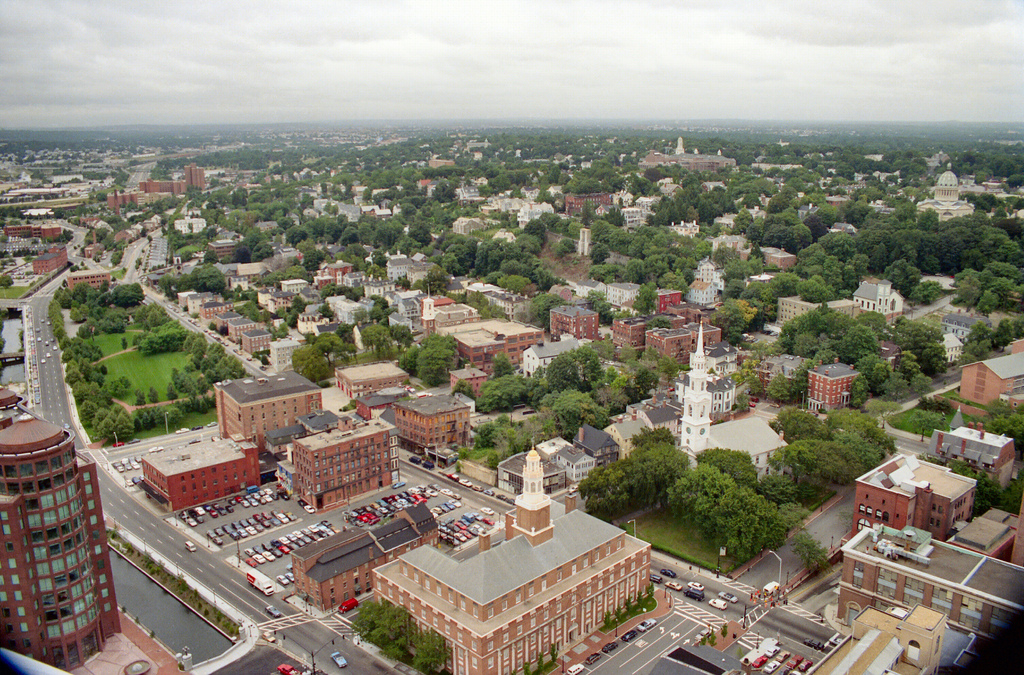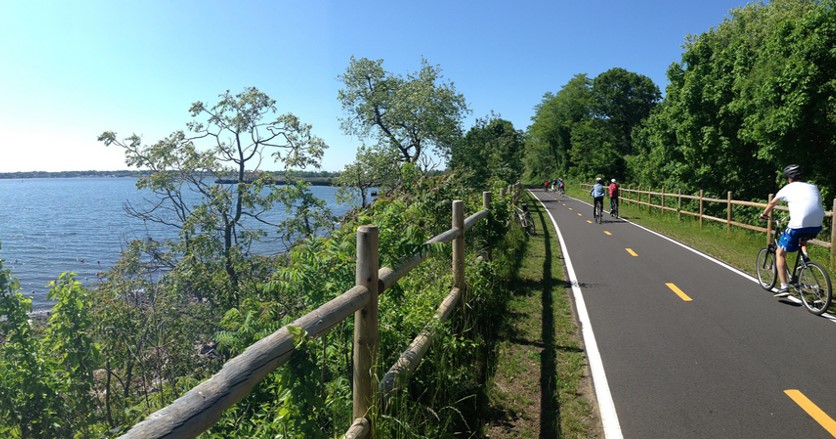
CLIMATE SMART CITIES METRO PROVIDENCE
ABOUT
Rhode Island is highly vulnerable to the impacts of a changing climate and is projected to face rising seas, more intense storms and precipitation events, and warmer days over the next several decades. With aging infrastructure and an economy dependent on a healthy Narragansett Bay, strategic action is needed now for Providence and its neighboring cities.
The Trust for Public Land’s national Climate-Smart Cities program is providing key planning and decision-making support to help the region take strategic action on climate change through green infrastructure. Together with municipal and community partners from six Rhode Island cities (Providence, Central Falls, Pawtucket, East Providence, Cranston, and Warwick), we’re bringing cutting-edge science, Geographic Information Systems (GIS) planning, and innovative design to prepare the entire region for a climate-resilient future with a particular emphasis on investments for underserved populations and integrated water management solutions.
New materials will be added to the site over the coming weeks. Check back for updates and more resources. Contact Kristen Weil with any questions or comments.



Our Climate-Smart Cities process bring together a team of experts to research, design, and build the infrastructure and tools that help increase our resilience to climate change. Our strategy is to:




The Challenge
Home to nearly half of Rhode Island’s population, the six-city Providence region presents a high-stakes environment for climate resiliency, where new strategies are needed to protect aging infrastructure and more than 400,000 residents. In the short term, these threats include stormwater pollution of the Providence River and Narragansett Bay, flooding, and intensified heat waves. In addition, the lack of non-motorized transit and greenway routes prevents the opportunity for carbon-free transportation, while isolating vulnerable populations, including elderly and low-income residents.
Partnerships
Working in partnership with local municipal agencies, and with critical input from state and federal partners, the local non-profit community, and research institutions, The Trust for Public Land’s Climate-Smart Cities program is meeting diverse localities in the greater Providence region where they are – taking advantage of the great work happening across the region, from the Rhode Island Green Infrastructure Coalition to state-led efforts – while also ensuring robust and consistent resources for regional data-driven decision-making.
Findings of the Discovery Process
The goal of the Discovery Process is to gain a common understanding of existing efforts related to multi-benefit green infrastructure implementation, identify barriers to implementation, and identify common gaps and research needs. Through a series of facilitated interviews with a broad cross section of city, nonprofit, academic, and private sector partners, we synthesized key findings across five major categories: drivers of green infrastructure implementation, barriers to green infrastructure implementation, green infrastructure decision makers, sources of green infrastructure funds, and information gaps and research needs.
GIS-based Decision Support
A web-based decision support tool and other related web applications will foster effective collaboration and science-based prioritization for green infrastructure development. This Climate-Smart Cities planning tool will help change agents consider climate risks within and across the Providence region and identify priority areas for multi-benefit green infrastructure investment—based on environmental threat and the location of vulnerable populations. The development of the tool was guided by a Technical Advisory Team with representatives from each of the partner jurisdictions, local organizations, and universities.
